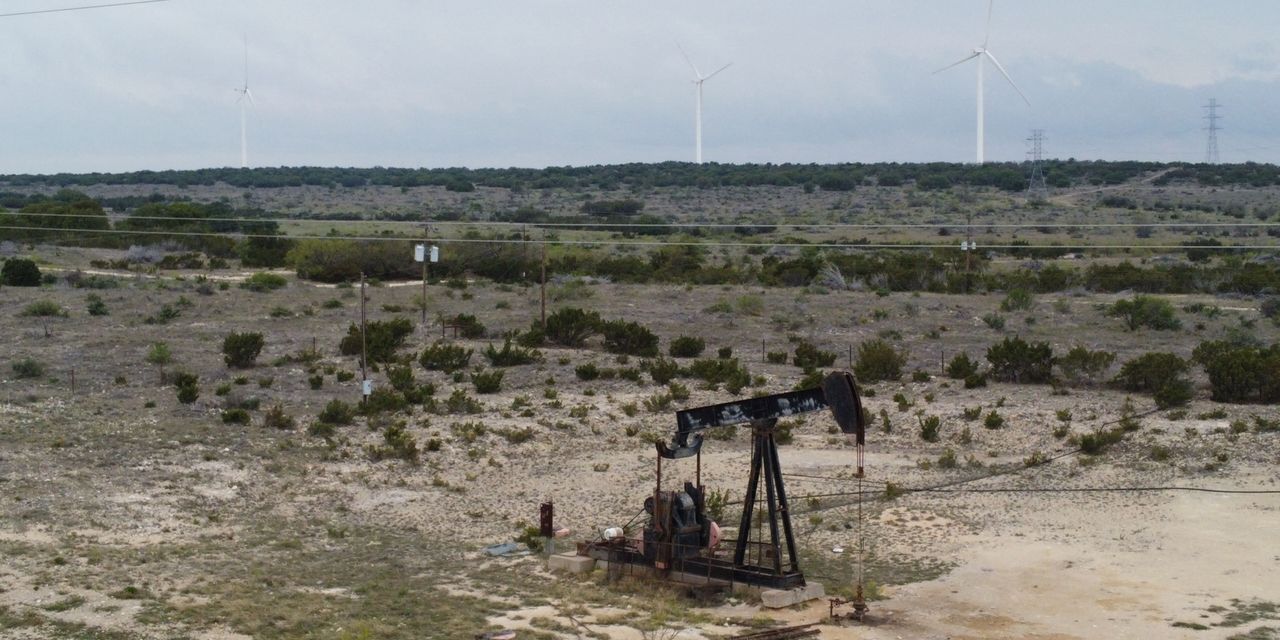
Oil futures rose Tuesday, with prices settling at more than two-year highs, on continued optimism about recovering demand and doubts that the U.S. would rejoin the Iran nuclear deal ahead of that country’s presidential election at the end of the week.
Traders also placed their bets ahead of a weekly U.S. report from the Energy Information Administration due out Wednesday that’s expected to reveal a fourth-straight weekly decline in domestic crude inventories.
“The fact that oil prices are still showing few signs of slowing means there has to be some concern that if we go too much higher, we could start to see some early signs of demand destruction,” said Michael Hewson, chief market analyst at CMC Markets UK.
“For now, that doesn’t appear to be happening, but we’ve still made another 24-month high on Brent, pushing us closer to $75 a barrel and the highs from 2019,” he said in a market update. “If we go much above $80 that picture could change quite quickly.”
West Texas Intermediate crude for July delivery CL00, +1.90% CLN21, +1.90% rose $1.24, or nearly 1.8%, to settle at $72.12 a barrel on the New York Mercantile Exchange. That’s the highest front-month contract finish since oct. 10, 2018, according to Dow Jones Market Data.
August Brent crude BRN00, +0.15% BRNQ21, +0.15%, the global benchmark, gained $1.13, or almost 1.6%, to finish at $73.99 a barrel on ICE Futures Europe, notching the highest settlement since April 2019.
Read: Here’s what sparked the latest talk over $100 oil prices
“The markets have been looking with interest at the ongoing negotiations between the U.S. and Iran, with the objective of reviving the nuclear agreement between the two countries, which could also mean the end of restrictions on Iranian oil sales,” said Ricardo Evangelista, senior analyst at ActivTrades, in emailed commentary.
Indirect negotiations between the two countries, however, have “so far failed to bear any fruits, with observers considering that an agreement is far from imminent,” he said.
The Trump administration withdrew the U.S. from the Iranian nuclear agreement in 2018, reimposing sanctions that have limited Iran’s exports. Tehran responded by breaching nuclear enrichment limits under the treaty. The U.S. isn’t a direct participant in talks aimed at seeing Iran move back into compliance with the agreement, but the Biden administration has signaled that it would be prepared to rejoin an agreement that sees Tehran agree to abide by the terms.
Iran’s presidential election takes place on Friday. Hard-line cleric Ebrahim Raisi is seen as the clear favorite, analysts said, after Iran last month disqualified dozens of candidates, including moderates and reformers.
Meanwhile, if the nuclear talks “drag on, there is the potential for a new government taking a different approach with the negotiations, which could possibly further delay any deal,” said Warren Patterson, head of commodities strategy at ING, in a note.
“We are assuming that Iranian supply increases from 2.4 million barrels a day currently to 2.6 million barrels a day over 3Q21 and then to 3 million barrels a day in 4Q21,” Patterson wrote. “ If talks do drag on into 2H21, this supply is at risk.”
That would mean, however, that other members of the Organization of the Petroleum Exporting Countries and its allies, known as OPEC+, would have more room to boost output later this year, he said.
Back on Nymex, July gasoline RBN21, +0.11% edged down by 0.03% to $2.17 a gallon, while July heating oil HON21, +0.23% settled at $2.11 a gallon, up 0.03%.
July natural gas NGN21, -3.73% ended the session at $3.24 per million British thermal units, down 3.3% after posting a Monday gain of 1.7%.
The EIA on Wednesday will issue its weekly data on petroleum supplies.
On average, analysts expect the government agency to report a decline of 4.2 million barrels in crude inventories for the week ended July 11, according to a survey from S&P Global Platts. That would follow four consecutive weekly declines.
The survey also showed expectations for unchanged gasoline stockpiles and an increase of 200,000 barrels for distillate supplies.










Add Comment